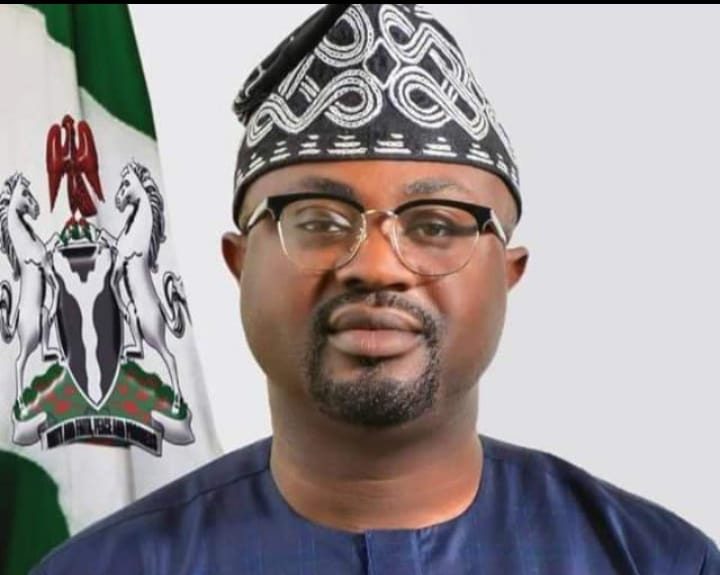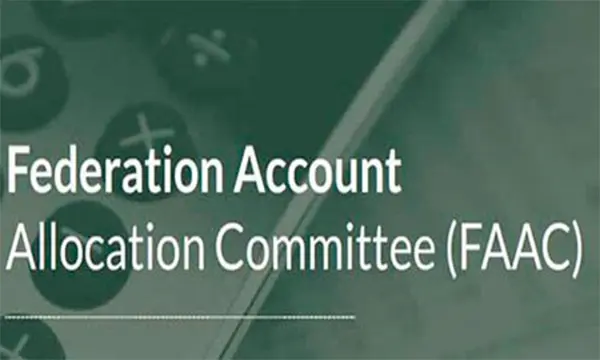Headlines
Nigeria Raises $1.25bn Through Eurobonds as Public Debt Hits N41.026tn

By Derrick Bangura
Nigeria has issued a seven-year Eurobond worth $1.250 billion (N520 billion) in the International Capital Market (ICM), making it the first African country to do so in 2022.
As of December 31, 2021, Nigeria’s total public debt stock, which includes the federal government, the Federal Capital Territory (FCT), states, and local governments, stood at N39.556 trillion, according to the Debt Management Office (DMO).
Furthermore, the DMO revealed that the federal government has borrowed about N950 billion from domestic sources so far to cover the N6.39 trillion deficit in the 2022 budget.
When the country’s new Eurobond is added to its debt position as of December 31, 2021, as well as the N950 billion it borrowed from the domestic market in 2022, the country’s total public debt stands at N41.026 trillion.
According to the DMO, proceeds of the Eurobond would be used to finance critical capital projects in the 2022 Budget to bridge infrastructure deficit in and strengthen Nigeria’s economic recovery.
The DMO in a statement announced that the Eurobond offer was launched at an initial price of 8.75 per cent per annum, adding that on the back of strong investor demand, Nigeria was able to revise the price guidance to 8.5 per cent per annum
According to the DMO, the Order Book continued to grow, reaching a peak of $4 billion.
The Order Book included many quality investors in the United States, Europe and Asia.
“With this strong investor interest, the price was tightened to 8.375 per cent per annum, the Order Book still remained high at 3.676 billion and retained the quality investors.
“Nigerian investors also participated in the Offer with a total subscription of $60 million.
“The proceeds of the Eurobond will be used to finance critical capital projects in the Budget to bridge the deficit in infrastructure and strengthen Nigeria’s economic recovery.
“Equally important, it would contribute directly and in full to the level of Nigeria’s external reserves,” the DMO said
Nigeria’s ability to access the ICM at this time underscores her established presence in the ICM and engagement with investors on a continuous basis.
Meanwhile, the DMO which revealed the country’s total debt position, disclosed that the federal government has so far borrowed about N950 billion from domestic sources to finance the N6.39 trillion deficit in the 2022 Budget.
The sum of N2.57 trillion was to be borrowed from domestic sources and another N2.57 trillion from foreign sources, while government hopes to draw down N1.16 trillion from multilateral/bi-lateral loans and harvest N90.7 billion from privatisation proceeds to fund the deficit.
The DMO Director General, Ms. Patience Oniha who unveiled the latest debt figures during an interactive session with journalists in Abuja on Thursday, noted that the comparable figure for December 2020 was N32.915 trillion or $86.392 billion.
The N39.556 trillion debt recorded as of December 31, 2021, was N1.566 trillion higher than the N38 trillion recorded as of September 30, 2021, even as Debt-to-GDP stood at 22.47 per cent as of December 31, 2021.
Oniha explained that the public debt stock for December 31, 2021, included new borrowings by the Federal Government of Nigeria (FGN) and sub-nationals, adding that for the FGN, the 2021 Appropriation and Supplementary Acts included total borrowing from domestic and external sources of N5.489 trillion to part-finance the deficit.
She added: “Borrowings for this purpose and disbursements by multilateral and bilateral creditors account fora significant portion of the increase in the debt stock. Increases were also recorded in the debt stock of the states and the FCT.
“The new borrowings were raised from diverse sources, primarily through the issuance of the Eurobonds, Sovereign Sukuk and FGN Bonds. These capital raising were utilised to finance capital projects and support economic recovery.
“With total public debt stock to Gross Domestic Product (GDP) as at December 31, 2021, of 22.47 per cent, the Debt-to-GDP ratio still remains within Nigeria’s self-imposed limit of 40 per cent.
“This ratio is prudent when compared with the 55 per cent limit advised by the World Bank and the International Monetary Fund ((IMF)for countries in Nigeria’s peer group, as well as the ECOWAS Convergence Ratio of 70 per cent.”
According to her, the federal government was mindful of the relatively high debt-to-revenue ratio and had initiated various measures to increase revenues through the Strategic Revenue Growth Initiative and the introduction of the Finance Acts since 2019.
Explaining why debt was growing, the DMO chief executive explained that debt accumulation was a global phenomenon, particularly necessitated by the impact of the COVID-19 pandemic.
She noted that as long as the country has been running deficit budgets for decades now, borrowing was inevitable, pointing out that as the country borrows each year, the existing debt stock expands.
Oniha stressed that high debt service rate was a function of the quantum of borrowing accumulated to build infrastructure.
On why the country was not excited by the rising prices of oil in the international market, Oniha said on one hand, Nigeria was not meeting its Organisation of Petroleum Exporting Countries (OPEC) while it also imports refined products which are denominated in dollars.
The DMO DG also reacted to reports that China was no longer willing to lend to Nigeria, adding that her office has continued collaboration with China on behalf the country.
She stressed that China’s loans to Nigeria account for just about three per cent or less than $4 billion of the nation’s total external loans, stressing that Nigeria has diversified its funding sources to avert any adverse impact from a particular lender.
Oniha disclosed that efforts to structure the federal government’s overdraft from the Central Bank of Nigeria (CBN) under the Ways and Means window were continuing.
Headlines
Noble Ladies Champion Women’s Financial Independence at Grand Inauguration in Abuja

Women from diverse backgrounds across Nigeria and beyond gathered at the Art and Culture Auditorium, Abuja, for the inauguration and convention of the Noble Ladies Association. The event, led by the association’s Founder and “visionary and polished Queen Mother,” Mrs. Margaret Chigozie Mkpuma, was a colourful display of feminine elegance, empowerment, and ambition.
The highly anticipated gathering, attended by over 700 members and counting, reflected the association’s mission to help women realise their potential while shifting mindsets away from dependency and over-glamorization of the ‘white collar job.’ According to the group, progress can be better achieved through innovation and creativity. “When a woman is able to earn and blossom on her own she has no reason to look at herself as a second fiddle,” the association stated.
One of the association’s standout initiatives is its women-only investment platform, which currently offers a minimum entry of ₦100,000 with a return of ₦130,000 over 30 days—an interest rate of 30 percent. Some members invest as much as ₦1 million, enjoying the same return rate. Mrs. Mkpuma explained that the scheme focuses on women because “women bear the greater brunt of poverty” and the platform seeks “to offer equity in the absence of economic equality.”
Education is also central to the Noble Ladies’ mission, regardless of age. Their mantra, “start again from where you stopped,” encourages women to return to school or upgrade their skills at any stage in life. The association believes that financial stability is vital in protecting women from cultural practices that dispossess widows of their late husbands’ assets, while also enabling them to raise morally and socially grounded families.
Founded on the vision of enhancing women’s skills and achieving financial stability, the association rests on a value system that discourages pity and promotes purpose. “You have a purpose and you build on that purpose to achieve great potentials and emancipation,” Mrs. Mkpuma said.
A criminologist by training and entrepreneur by practice, she cautions against idleness while waiting for formal employment. “There are billions in the informal and non-formal sectors waiting to be made,” she said, rejecting the “new normal of begging” and urging people to “be more introspective to find their purpose in life and hold on to it.”
Mrs. Mkpuma’s management style keeps members actively engaged, focusing on vocational skills and training to prepare them for competitive markets. She is exploring “innovative integration of uncommon technologies” and is already in talks with international franchises to invest in Nigeria, with Noble Ladies as first beneficiaries.
The association’s core values include mutual respect, innovation, forward-thinking, equal opportunity, and financial emancipation. With plans underway to establish a secretariat in the heart of Abuja, the group aims to expand its impact.
The event drew high-profile guests, including former Inspector General of Police, Mike Okiro, and a host of VIPs, marking a significant milestone in the association’s drive for women’s empowerment.
Headlines
NEPZA, FCT agree to create world-class FTZ environment

The Nigeria Export Processing Zones Authority (NEPZA) has stepped in to resolve the dispute between the Federal Capital Territory Administration and the Abuja Technology Village (ATV), a licensed Free Trade Zone, over the potential revocation of the zone’s land title.
Dr. Olufemi Ogunyemi, the Managing Director of NEPZA, urged ATV operators and investors to withdraw the lawsuit filed against the FCT administration immediately to facilitate a roundtable negotiation.
Dr. Ogunyemi delivered the charge during a courtesy visit to the Minister of the Federal Capital Territory, Barrister Nyesom Wike, on Thursday in Abuja.
You will recall that the ATV operators responded to the revocation notice issued by the FCT administration with a lawsuit.
Dr. Ogunyemi stated that the continued support for the growth of the Free Trade Zones Scheme would benefit the nation’s economy and the FCT’s development, emphasizing that the FCT administration recognized the scheme’s potential to accelerate industrialisation.
Dr. Ogunyemi, also the Chief Executive Officer of NEPZA, expressed his delight at the steps taken by the FCT minister to expand the economic frontier of the FCT through the proposed Abuja City Walk (ACW) project.
Dr. Ogunyemi further explained that the Authority was preparing to assess all the 63 licensed Free Trade Zones across the country with the view to vetting their functionality and contributions to the nation’s Foreign Direct Investment and export drives.
“I have come to discuss with His Excellency, the Minister of the Federal Capital Territory on the importance of supporting the ATV to succeed while also promoting the development of the Abuja City Walk project. We must work together to achieve this for the good of our nation,” he said.
On his part, the FCT Minister reiterated his unflinching determination to work towards President Bola Ahmed Tinubu’s Renewed Hope Agenda by bringing FDI to the FCT.
“We must fulfil Mr. President’s promises regarding industrialization, trade, and investment. In this context, the FCT will collaborate with NEPZA to review the future of ATV, a zone that was sponsored and supported by the FCT administration,” Wike said.
Barrister Wike also said that efforts were underway to fast-track the industrialisation process of the territory with the construction of the Abuja City Walk.
The minister further said the Abuja City Walk project was planned to cover over 200 hectares in the Abuja Technology Village corridor along Airport Road.
According to him, the business ecosystem aimed to create a lively, mixed-use urban center with residential, commercial, retail, hospitality, medical, and institutional facilities.
He added that the ACW would turn out to be a high-definition and world-class project that would give this administration’s Renewed Hope Agenda true meaning in the North-Central Region of the country.
Barrister Wike also indicated his continued pursuit of land and property owners who failed to fulfil their obligations to the FCT in his determination to develop the territory.
Headlines
Benue IDPs block highway, demand return to ancestral homes

Vehicular movement along the Yelwata axis of the Benue–Nasarawa highway was brought to a standstill on Wednesday as Internally Displaced Persons, IDPs, staged a protest, demanding immediate return to their ancestral homes.
The protesters, believed to be victims of persistent attacks by suspected herdsmen, blocked both lanes of the busy highway for several hours, chanting “We want to go back home”.
The protest caused disruption, leaving hundreds of motorists and passengers stranded.
Eyewitnesses said the displaced persons, many of whom have spent years in overcrowded IDP camps, are expressing deep frustration over the government’s delay in restoring security to their communities.
“We have suffered enough. We want to return to our homes and farms,” one of the protesters told reporters at the scene.
Security personnel were reportedly deployed to monitor the situation and prevent any escalation, though tensions remained high as of press time.
Efforts to reach the Benue State Emergency Management Agency, SEMA, and other relevant authorities for comment were unsuccessful.
-

 Headlines4 years ago
Headlines4 years agoFacebook, Instagram Temporarily Allow Posts on Ukraine War Calling for Violence Against Invading Russians or Putin’s Death
-

 Headlines4 years ago
Headlines4 years agoNigeria, Other West African Countries Facing Worst Food Crisis in 10 Years, Aid Groups Say
-

 Foreign3 years ago
Foreign3 years agoNew York Consulate installs machines for 10-year passport
-

 News1 year ago
News1 year agoZero Trust Architecture in a Remote World: Securing the New Normal
-

 Entertainment3 years ago
Entertainment3 years agoPhyna emerges winner of Big Brother Naija Season 7
-

 Headlines1 year ago
Headlines1 year agoNigeria Customs modernisation project to check extortion of traders
-

 Entertainment2 years ago
Entertainment2 years agoMovie download platform, Netnaija, announces closure
-

 Economy2 years ago
Economy2 years agoWe generated N30.2 bn revenue in three months – Kano NCS Comptroller















